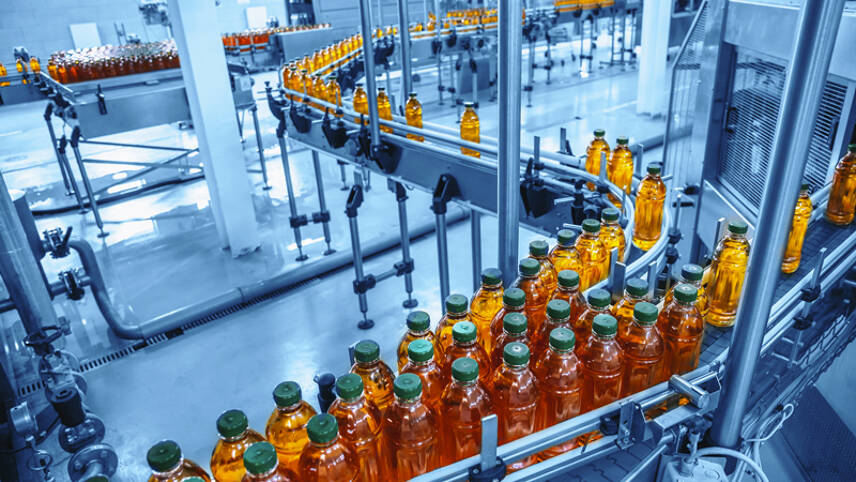Register for free and continue reading
Join our growing army of changemakers and get unlimited access to our premium content

High energy prices are focusing minds on efficiency, but may be dampening long-term investment in emerging technologies
The survey was conducted by industry body Make UK in association with Siemens in April. The results were first published this week in a new report, revealing an increased appetite for reducing emissions post-lockdown, despite financial challenges.
Almost half (46%) of the respondents said that their company is already implementing decarbonisation plans, with a further 25% intending to start the implementation progress within 12 months.
Overall, just 3% of respondents said there would be no decarbonisation-related activity undertaken within their operations in this period. This is down from 10% last year. Factors which may have contributed to this are the need to respond to the energy price crisis and more clarity from the Government about the direction of travel towards net-zero, with several key policy packages having been published to coincide with the UK’s COP26 Presidency.
On the price crisis, more than half of the respondents agreed that the rising cost of energy has increased their motivation to reduce emissions. Three-quarters of the respondents see improving energy efficiency as the main focus of their decarbonisation plans, as this is a quick way to reduce bills as well as emissions. 42% of respondents are planning to install new or upgraded equipment with the intention of improving energy efficiency, others may look to behaviour-change-based or digital-tech-based solutions.
Also, 39% of the respondents see on-site renewable energy generation as a priority step towards reducing bills and emissions. “Where possible, manufacturers will opt to produce their own energy, which may or not cover all their needs,” the report notes.
Aside from responding to the energy crisis, a key driver of decarbonisation motivation was found to be the rising cost of raw materials. Three in ten respondents said their business is already implementing changes to improve resource efficiency.
Other top motivators for reducing emissions were found to be ‘doing the right thing’ and responding to changing consumer demands. Government strategy was a motivator for just 7% of survey respondents, but compliance-related government requirements were flagged by 22%.
Emerging technologies, financial crunch
It bears noting that just 8% of respondents class carbon capture technologies as a “key pathway” for decarbonisation, to prioritise this year. The proportion stands at 7% for hydrogen.
This is perhaps to be expected given the costs associated with these nascent technologies. When asked to describe the main barriers to their organisation’s decarbonisation efforts, 43% flagged the cost of upgrading and replacing equipment. 31% were concerned that they may not remain cost-competitive, and 31% were concerned about the cost of fuel switching. Make UK said it found this “unsurprising”.
The Energy Security Bill was introduced to Parliament last week and will kick-start the formal introduction of a Business Model for carbon capture and low-carbon hydrogen. This is intended to help de-risk early-stage investment in these sectors, which will need to expand quickly to meet the Government’s own targets. 10GW of blue and green hydrogen production capacity by 2030 is the overarching target in this space. On carbon capture, the headline vision is the creation of four industrial clusters using these technologies – the first of which should come online this decade, contributing to the capture of at least 20 million tonnes of CO2 annually by 2030.
Some manufacturers are already investing in these technologies as first movers. Those using hydrogen-fuelled processes include Quorn Foods, Jaguar Land Rover, Kelloggs, PepsiCo, Unilever and Pilkington Glass.
Make UK also documented a broad lack of awareness of how to access Government funding for decarbonisation schemes. 31% of survey respondents said they did not have access to sufficient funding, externally and/or internally.
Yet less than one-fifth of respondents said their firm is aware of – and using – tax reliefs available to all energy users. Of those falling within the requirements for tax reliefs for energy-intensive companies, 38% were unaware of the opportunity. Many of those that were aware had tried to apply but failed, or put off applying until this financial year.
And, on government grants and funds, just 10% of survey respondents said their firm has made a successful application. 25% are intending to apply within 12 months. The report includes a table of available Government support and how to access these schemes and also calls on the Government to go further.
Make UK’s chief executive Stephen Phipson said: “To turbo-charge investment in decarbonisation projects, [the] Government should introduce full expensing on green technologies and expand the R&D tax credit to include industrial decarbonisation.
“The Help to Grow programme should be expanded to Help to Grow Green, which would support businesses in their decarbonisation journey and supercharge green investment.
“Companies should also be incentivised to invest in on-site energy generation, where surplus can be added back to the national grid to improve the UK’s energy security.”
This year’s Srping Statement did include a positive move on Phipson’s latter point. It was confirmed that businesses looking to fit low-carbon technologies onsite, including rooftop solar, battery storage and cycling infrastructure, would receive rates relief from this April to 2035.


Please login or Register to leave a comment.